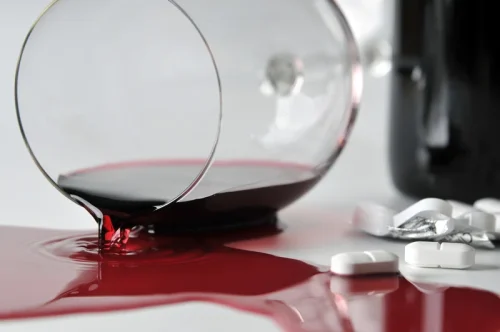
While a short-term problem, it is often very serious and can even be life-threatening in some situations. In contrast, Menon et al. could not find any adverse or beneficial effects of alcohol consumption on kidney function in the elderly [88]. A Japanese cohort study also found that CKD is an independent risk factor for higher rates of stroke in men and women.
Treatments for chronic kidney disease
Abstinence is one of the characteristics of human drinking habits; many doctors will encourage patients to stop drinking, which may be good for their health [121]. As for the kidney damage caused by alcohol, some studies discovered that the patients’ renal function recovered after abstinence [1]. However, others also found that abstinence cannot completely repair the kidney injury [26]. Unfortunately, existing clinical studies have not analyzed why some patients with CKD give up drinking and the influence of giving up drinking on the prognosis of these patients. Many studies have confirmed that unhealthy diet and lifestyle can cause various diseases, and heavy alcohol consumption is one of the important factors [66]. As an influential factor of many chronic diseases, alcohol consumption has been increasingly studied in recent years.

Drinking patterns and associated effects
- Still, you should talk with your doctor about the safety and impact of drinking alcohol if you already have kidney disease or kidney cancer.
- Respiratory acidosis is rare but carries an ominous prognosis when it occurs.
- Having an occasional glass of alcohol may not cause any harmful effects if your kidney functions regularly.
- However, clinical research shows the amounts and patterns of alcohol consumption both affect eGFR in patients with CKD [7].
- This is because alcohol restricts the kidneys ability to reabsorb water into the blood.
The kidneys are designed to retain water when dehydration occurs, but they cannot fully compensate when alcohol is still being used. If you have kidney cancer, it’s best to talk with your doctor about moderate drinking. Your doctor can give you advice about whether it is safe to consume alcohol while undergoing cancer treatment. Alcohol increases your risk of many types of cancer, including breast, liver, mouth, and colon. However, 2012 research suggests your risk of developing kidney cancer may be lower if you consume alcohol.
Can You Drink Alcohol with Chronic Kidney Disease?
- We think that the enhancement of CAT activities may not come from high concentration of ethanol, but rather from the compensatory improvement of antioxidant capacity after the intervention with low-concentration ethanol in the early stage.
- Medical testing by a doctor will be necessary to determine if kidney damage has occurred.
- In contrast, some studies find that heavy alcohol consumption may predict poorer outcome in patients with chronic kidney diseases (Kronborg et al. 2008; Shankar et al. 2006; White et al. 2009).
- They regulate water intake and outtake, they balance the amount of minerals in the body, and they produce vital hormones, according to the Kidney Foundation of Canada.
- In addition, Das et al. reported that alcohol consumption impairs the ability of CAT to catalyze the decomposition of H2O2 in the kidneys [41].
A person who experiences this type of pain, especially if it intensifies over hours or days, may have a serious illness and should speak to a doctor. In general, the proximal part of the small intestine is the main site for alcohol absorption. Additionally, the stomach, large intestine, esophagus, and even the mouth can absorb small amounts of ethyl alcohol [21].
Restricting the fluid intake of hyponatremic patients eventually should restore a normal fluid balance; unfortunately, this restriction may be difficult to implement. Patients frequently fail to comply with their physician’s orders to limit their fluid intake. Furthermore, clinicians sometimes overlook the fact that fluids taken with medications also must be restricted for these patients and mistakenly bring pitchers of juice or water to their bedsides. Low blood levels of phosphate commonly occur acutely in hospitalized alcoholic patients, appearing in more than one-half of severe alcoholism cases.

Alcoholism and Kidney Disease

For example, alcohol can induce the production of reactive oxygen species/reactive nitrogen species (ROS/RNS), which can result in oxidative stress in the kidneys, leading to potential renal injury resulting from hemodynamic disorders and inflammation [24–28]. Addressing kidney failure and disease as a result of excessive drinking can also mean receiving alcoholism treatment and counseling. This involves breaking the physical hold of alcohol on the individual and then providing psychological and social care to ensure how does alcohol affect the kidneys that alcohol no longer presents a medical or mental health risk. The data set did not contain laboratory data and the CKD diagnosis was dependent on the ICD-9-CM code. Participants’ baseline characteristics, including weight, height, education, marriage status, household income, smoking, drinking, diet, and exercise habits, were self-reported, and recall bias should be concerned. The survey questions did not distinguish non-drinkers and former drinkers, and former drinkers were categorized as non-drinkers.
To perform these functions, the kidneys are comprised of approximately a million functional units called nephrons in each kidney. The filtrate material may also contain nutrients, which the kidneys help reintegrate into the blood. To keep the kidneys functioning optimally and to maintain functional stability (i.e., homeostasis) in the body, a variety of regulatory mechanisms exert their influence. Alcohol can perturb these controls, however, to a degree that varies with the amount of alcohol consumed and the particular mechanism’s sensitivity. You can reduce the risk of dehydration by drinking water while using alcohol.







